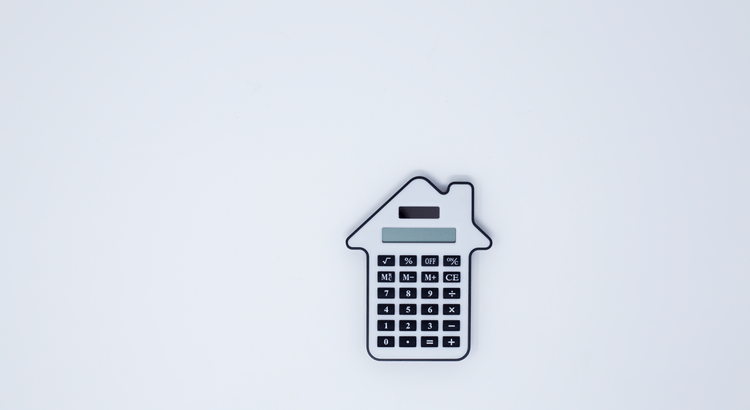Whether you are planning to buy your first home or your fifth, there are several things you should do before you go house hunting and pull the trigger. Gathering information is a big part of this process. This isn’t difficult, but it will take a little time–time well spent if it can prevent you from making mistakes and losing time and money.
1. Start saving now for a down payment.
First-time homebuyers often struggle to come up with the money needed for a down payment on a home. Typical loans will require a minimum of 10% down. So a $300,000 home will require that you plunk down $30,000 of your own money.
That number can be overwhelming, but it’s not impossible to achieve if you start saving well before you are actively looking for a house. Unfortunately, you can’t go back and start saving last year, but you can start today!
Some low-down payment loans requiring less than a 10% down payment are available, but most conventional loans require 10% down.
You can also save PMI (private mortgage insurance), which is a fee charged by the mortgage company on top of the loan, if you pay less than 20% down. The fee will range from about .58% to 1.5% depending on credit score, loan amount and other factors.
2. Check your credit score.
Unless you are paying cash for your home, you will need a loan to cover most of the cost of your home. Your credit score will impact the amount of money you can borrow and the terms of the loan. If your score is too low, you may not qualify for a loan at all.
Credit scores range from 300 to 850. At a minimum, you’ll need a credit score of 500 to qualify for a FHA loan with 10% down. Conventional loans will require much higher scores, typically over 700.
If you qualify for a loan, but your score is on the low side, you will likely pay a higher interest rate (and thus higher mortgage payments) for the entire term of the loan. This can cost you tens of thousands of dollars over the life of the loan. However, you can take steps to raise your credit score.
Check your score, then consider how you can raise your score before applying for a loan.
You can check your credit score free of charge every 12 months at https://www.annualcreditreport.com/. Request a credit report from each of the three credit bureaus, Equifax, TransUnion and Experian. They will be slightly different, so make sure the information is accurate on all three.
3. Fix credit report mistakes.
Once you pull your credit reports for free (or you can purchase them if necessary), look them over carefully. You will see credit cards, loans and other information the credit bureaus have collected about you and your credit and payment history. If you have been sued, arrested or declared bankruptcy, that will probably be recorded on the reports also. Make sure the information is accurate and up to date.
Look for accounts that don’t belong to you. Look for erroneous information about late payments. Look for accounts that you closed but that still shows as open, and vice versa. Look for open collections that should show as satisfied.
You have a legal right to dispute errors on the reports, so take action if necessary to fix mistakes. If you see any problems, contact the appropriate credit bureau to make necessary corrections.
4. Start improving your credit.
There are simple steps you can take to improve your credit.
- Pay down credit cards and keep them low.
The credit bureaus like to see a low credit utilization ratio. If you have $10,000 of available credit and use $2,000 each month, that’s a 20% credit utilization. Do your best to pay this down as much as possible, and keep it low.
If you are able to become an authorized user on another person’s account, this can help you improve this credit utilization ratio. Of course, make sure this person is responsible with their credit or any strikes against their credit rating may hurt your score.
- Don’t open unnecessary credit accounts.
Unless absolutely necessary, refrain from opening any further credit accounts prior to and simultaneous to applying for a mortgage. Too much outstanding credit, especially recently granted credit, can negatively impact your credit score.
- Keep your existing credit accounts open
If you have credit cards or other credit accounts that aren’t in use, don’t close them (unless they are costing you too much money for annual fees). When you close these account, this can negatively impact your credit utilization ratio.
- Avoid credit inquiries
When you apply for credit, the creditor will issue credit inquiries to the major credit bureaus. This is a hard inquiry on your credit because this is being used to make a decision on issuing credit. Too many hard inquiries can reduce your credit score.
On the other hard, soft inquiries occur when you check your credit yourself or when companies check credit for preapproved credit offers. This type of inquiry does not impact your credit score.
5. Create a personal budget.
Ugh! Budgeting! For some people “budgeting” is a four-letter word. It means you actually have to be responsible with your money, watching it carefully and forgoing some fun things in life.
But you must keep the ultimate goal in mind: buying a home.
Create a simple spreadsheet and note all of your monthly household income. Next, put down categories for all of your expenses. Food, rent, automobile expenses, entertainment, credit card payments, savings, taxes, unexpected expenses, etc. Try to look at several months to get an average for each category.
Now, subtract all your expenses from your income. Is the result a positive number? Great! You are spending less than you make. You’re on the right track.
Next, you need to determine what, if any, categories will change after you buy a home. Some obvious areas that will increase include your new home mortgage payment (instead of rent), maintenance costs, homeowners insurance, HOA fees and real estate taxes. You may have some categories that decline such as transportation (if you move closer to work), storage costs (if you can get rid of a storage unit) and food costs (if you have more freezer space to take advantage of bulk buying). Total everything up and determine what your budget would look like after buying a home.
A budget will help you make better financial decisions, now and in the future. Once you have a mortgage, you will need to manage your money carefully and make payments on time. This is a great time to get in that habit.
6. Answer the question, “How much home can I afford.”
You’ve determined what your budget looks like. Now you can decide just how much you can afford to spend on a home.
Lenders like to use a debt-to-income ratio to determine how much you can afford to spend on a mortgage. A good rule of thumb is that your housing expense, including mortgage, taxes and insurance, should not exceed 28% of your income. And your total debt (mortgage, credit cards, auto loans, etc.) should not exceed 36% of your income.
A quick calculation example:
Monthly Income: $5,000 x .28 = $1,400.
In this case, your mortgage, taxes and insurance, should not exceed $1,400 per month.
Monthly Income: $5,000 x .36 = $1,800.
Here, your total monthly debt payments should not exceed $1,800 per month.
These are guidelines that may be affected by your credit score and other factors. Lenders will adjust, up or down, how much they are willing to lend based on those factors.
One way home buyers get into trouble is when they take on a home loan that is bigger than their current income vs. expenses and debt can handle. If you already have a bunch of credit card debt, then you take on a home loan on top of that, you can quickly find you are not able to make even minimum monthly payments.
Remember, lenders are in business to make loans. They will sometimes make loans to people who really can’t afford those loans, causing the borrower to default on the loan months or years down the road. Be honest with yourself about how much you earn versus how you spend money and how much you are willing to sacrifice to get the home you want. If your income drops, do you have money to survive on and still meet your loan obligations? You may decide you need to save money for a bit longer before taking on the responsibility of a mortgage.
7. Decide how much home you actually need.
Have you ever gotten a stomach ache because you ate too much at your favorite restaurant? You see a big plate full of your favorite food and dig in. Before you know it, you are feeling overly full, but it tastes so good, you just keep eating until you find yourself stuffed and nearly sick.
Home buying can be very similar. You start looking at homes, you see all the beautiful features and the bells and whistles and you just have to have it. You may be able to afford it, according to the debt-to-income ratio as discussed above, but once you buy it, you may find the monthly expense is too much, and now you have a “debtors stomach ache.”
Just because the numbers say you can afford it, that doesn’t mean you have to buy it.
Especially when you are a first time buyer, being honest with yourself about what you truly need in a home can prevent you from buying too much home. Do you really need a basement? Do you really need 4 full baths? Do you really need a 3 car garage? Be honest about what your or your family need to live versus what you just want to have. Always keep your income in mind and balance wants and needs with you income and expenses.
Remember that it is almost always easier to sell a home and move to a bigger one when your income goes up than it is to pull yourself out of foreclosure if you can’t make your monthly mortgage payments.
8. Get very clear about what you want in a home.
Start a list of the features you want in a home. If you are buying the house with a spouse or partner, spend time creating a list you both agree on.
Sort the features into “must-have” and “want-to-have” lists. These lists will guide your search, but they will also be very important to share with your real estate agent. Your agent needs to know your hot buttons so they can direct you to the homes that are best for your wants and needs.
9. Know what you don’t want in a home.
Excluding features is sometimes the best way to narrow your search and find the perfect house. If you know you can’t stand being on a main thoroughfare, add that to a list of things you don’t want. If you don’t like noisy neighbors then condos aren’t for you.
Once again, share this list with your agent so they can make your search faster and more effective.
10. Become familiar with the available market.
Today, there are so many resources available to research the properties that are available. For example, you can search right here on this site and find the majority of the homes listed for sale in Atlanta.
Spend time familiarizing yourself with the price ranges within areas that interest you. Can you afford a home in a particular area? Searching by maximum price, you can quickly find homes that are within your budget. Do they have the number of bedrooms and bathrooms you need? If not, you might need to look in a different part of town.
Get to know the size of homes that are available in a particular area. Some areas will have few properties available with five or more of bedrooms. You might not find basements in another area. Still other areas may be strictly condos or high-rise apartments.
Where are the schools in relation to the properties? Are the schools good ones?
You might need to widen your scope of search just a little to find the size and price and features that you want in your ideal home.
11. Shop around for a mortgage.
When you buy a car, you probably look at several before you settle on one. If you are buying a new car, you might go to several dealers and compare their prices on the same model. It’s just “good business.”
So, when you get a mortgage, you should do the same thing: shop around!
Mortgage rates and programs can vary quite a lot. And service may be the most important thing to shop for if you don’t want unnecessary delays in loan processing.
Ask around for recommendations from friends and family. A mortgage broker can help you find a loan from multiple sources. And don’t forget your local credit union as another option for rates that may be lower than most other lending institutions.
Do your due diligence and pick a reputable company when you finally pull the trigger.
12. Get pre-approved for your mortgage.
You’ve taken steps to save a down payment, improve your credit and get clear about what you want in a home. You may have started searching for property. You’ve compared lenders.
You’re ready now to actually look at houses and possibly make offers! Whoa there! Before you get all excited, take the time to get pre-approved for a loan.
Lenders offer pre-qualification and pre-approval to help give their clients an idea of how much they can actually borrow. These two options may sound nearly identical, but they are not. One is a mere estimate or opinion, the other is an actual approval to borrow up to a certain amount of money. Let’s look at the difference.
Pre-qualification is a simple estimate of how much you qualify to receive on a loan based on limited information that you submit to a lender. The lender typically does not verify the information with third parties, so no legally binding commitment is made to lend you the money. Your credit is normally not verified with credit bureaus. There’s usually no charge for a “pre-qual” letter, and they can be available in just a few hours up to about three days.
On the other hand, a mortgage pre-approval letter involves a much more formal submission of a mortgage application which typically requires the borrower to pay a fee. You will submit bank statements, tax returns and many other documents, depending on the policy of each lender. The lender will pull your credit, and a loan officer will investigate your financial background with third parties. Pre-approvals take several days to a couple of weeks to complete.
At a minimum, before you search for property, get a pre-qualification letter so you have a general idea of how much you can borrow. Most real estate agents will ask you to get pre-qualified before they start showing you property.
When you are ready to actually make offers on properties, getting pre-approved will help you to win an offer on a home. In competitive markets, sellers may have 10 or more offers come in on the same day. Given similar offer prices, a seller will almost certainly pick a buyer who has a pre-approval from a lender versus homebuyers who aren’t pre-approved because the seller has greater assurance that the transaction will actually close.
13. Hire a real estate agent.
We might be a bit biased, but we do believe that an agent will make your home buying experience easier, faster and less costly than if you go it alone. Agents have familiarity with the area. They have experience negotiating to get you the best deal possible. They can save you from wasting time on properties that you can’t afford or that would not meet your requirements.
Agents really do work hard to make their clients’ dreams come true, but as a buyer, the services of your agent cost you nothing out-of-pocket. The agent is nearly always compensated by the seller, so why not get their free expertise and assistance? This is especially true if you are a first time home buyer or are not familiar with the area.
14. Help your agent help you.
Real estate agents may do a Herculean job of finding you a home, but they are still only human. They can’t read minds. They can’t avoid the laws of physics and appear out of thin air when you want them. They can’t enter the mind of a seller and make the seller give you the home you want for free.
What an agent can do is give you amazing service based on what you enable them to do for you. That means that you are very clear about what you do and don’t want in a home. It’s important to relay this information to your agent up front. Now, of course an agent’s job is to present creative alternatives when a buyer asks for something that is financially impossible or for a property that is simply not available. But your agent can only do this if you have open communication with them, and are willing to listen to alternatives and options they present to you.
Remember that your agent is working hard for you to help you close a deal. Use their expertise to your advantage. You hired them for that expertise, right? Let them guide you during your property search and during offer preparation and subsequent negotiation. Negotiating can be tense and even confrontational. Do your best to reduce any confrontation with your agent. They are on your side, working to help you. Confrontation with the seller is enough!
15. Be aware of the current market conditions.
The real estate market is very cyclical. The ups and downs of real estate are practically nightly news. Real estate sales have a huge impact on the economy that can last for years.
Begin paying attention to the real estate market so that you will be ready for the challenges and opportunities that it presents. Read and listen to the news. You’ll quickly find out what kind of market your area is in. Your agent can advise you on this as well.
Is it a seller’s market? That means sellers are in the drivers seat, able to sell quickly and get above-market prices for their homes. Buyers will compete for homes, driving the prices well above the asking price. As a buyer, you will likely have to make offers on several homes, and at higher prices than you’d like to pay, just to get a seller to consider your offer.
Is it a buyer’s market? After tough economic times, real estate prices may be depressed and the market may be flooded with houses that aren’t selling. Buyers are able to take their time, pick from many different options, and make low-ball offers that get accepted.
Know what you are facing when you start home shopping so that you make the best of the current economic situation.
16. Think about resale for every property you look at.
Will you buy your house and live in it the rest of you life? Not likely. Most people sell every few years due to job changes or life changes or just the desire for something new. This is human nature and the natural course of life.
Because of the short term nature of home ownership, considering the resale potential of a home before you ever buy it is important to preserve your equity. For example, if you buy a home that has an oddball layout, it may work perfectly for you, but it may be difficult to sell in the future. You may have to reduce the price or remodel the house just to make it desirable for the next owner.
Think a step ahead and consider what the next owner will think about (and pay for) the house.
17. Look at several homes before settling.
Buying a home is inherently emotional. When you tour a property, you start imaging your life and your family in that place. It becomes more than just a structure. It becomes “home” in your mind. It’s easy to get excited when you see a new place, with exiting features, rooms and options you don’t currently own.
Buying on emotion can get you in trouble, especially if you look at one or two houses and decide you have seen enough. The marketplace is full of a wide range of options, with dozens of styles, hundreds of features and selections, all at different price-points.
Take some time in the beginning of your search to view several homes to get a good sampling of what is available. Look at both new and resale homes. Especially with new construction homes, you can view these on your own, without having to drag your agent along.
Get familiar with the available options so you get what will really make your home a dream home.
18. Consider non-house factors.
The saying goes, “The three most important factors in real estate are location, location, location.” This alludes to the fact that the house or structure itself isn’t the most important factor in determining the price of a home. We’ll leave that debate for another time, but we will acknowledge that location plays a critical role in home prices.
As you consider various properties for possible purchase, look at these surrounding “locational circumstances”:
- Quality of schools
- Access to shopping
- Access to grocery stores
- Access to public transportation
- Access to roads and highways
- Traffic congestion
- Crime statistics
- Real estate taxes
- Proximity to industrial or other less than desirable “neighbors”
- Any other nearby factors that may impact, positively or negatively, your quality of life
19. Consider the possibilities.
It’s easy to dismiss a house that doesn’t have everything you want, or one that has some feature that falls short of your expectations. But what if you look to the future? Could you transform whatever it is that you don’t like or that is missing from a house and make it what you want?
Especially during a seller’s market, when the competition for houses is fierce and the supply is low, it’s good to be flexible in what you are willing to purchase. You can create flexibility by looking at things you don’t like about a house as opportunities.
Don’t like the color of the walls? You can paint that for a few bucks and a few hours of your time on a Saturday. Wish the house had an island in the kitchen? A contractor (or you) can add that sometime down the road. You can even purchase a temporary rolling cart. Wish the backyard was an outdoor oasis? You can put in the elbow grease and some money to make it what you want as a do-it-yourself project.
A home requires constant care and feeding. You’ll never buy the perfect home. But you can work toward that end goal by doing upgrades, either with your own hand or by hiring the right contractor.
Consider each house that you view during your search as a block of stone that can be chiseled and crafted into the work of art that you want to live in.
Houses that have minor defects may be wonderful opportunities because other less flexible buyers will skip over them. And you may be able to pick up this type of house for a lower cost.
20. Consider the entire house, not just one feature.
Do you have a hot-button feature that will make you fall in love with a house? For example, are you enamored with columns on the front of a house, or do you swoon over a huge entryway?
If you are easily swayed to love a house for one or two features, be careful that you don’t ignore the rest of the house, especially if it is not in the best shape. You have to look at the complete picture. Remember, you need to think about resale. But you also need to look at how a house will serve you during the time you are in it yourself.
If you buy a house for its grand entryway, but the rest of the rooms are too small, your family may be miserable every day. Look at the whole house, not just the features that excite you personally.
Listen to your agent when they offer any downsides about a particular property.
21. Get a professional inspection.
When you have found a property on which you wish to make an offer, be sure to get a professional inspection and make the closing contingent upon a satisfactory inspection report. Your agent will help you with the appropriate wording for this in your offer. And they can probably recommend an inspector as well.
An inspection will cost a few hundred dollars, but it will be worth every penny. Inspectors will uncover existing problems that require repair. Those repair costs can be negotiated into the final deal. Inspectors can also make you aware of developing problems in the house, which may cost hundreds or thousands of dollars to repair in the future. Depending on the severity of the problems, you may decide to cancel your offer and move on to the next house.
Don’t skip this step! When making what is likely the biggest purchase of your life, be willing to spend a little money to protect yourself.
22. Make your own property inspection.
Don’t just rely on a professional to inspect a property. While you may not have any formal training in construction, you can certainly use your own eyes to look for obvious problems or things you don’t like about a house. And you can ask a friend or family member who is knowledgeable and observant about construction to accompany you on your own inspection.
Look for obvious problems like water stains and leaks both inside and outside. Make sure gutters and piping outside are in good condition. Water is second only to wind in causing damage to homes.
Look for broken or damaged wood and other surfaces. Look for repairs and upgrades made by the previous owner to see if they are still functioning or if they will need additional repairs.
Test light switches. Test electrical outlets. Flush toilets. Run sinks and showers and tubs. Check outside spigots.
Make sure doors and windows open and close smoothly. Is the garage door functioning properly?
Look at concrete. In the driveway. In the walkways. In the garage. In the basement. Under the house. Cracks are normal, but large cracks can lead to large repair bills.
Are the floors level? Do they squeak in some areas? Is there damage to the flooring? Can it be repaired or will it need to be replaced?
The list of things to inspect is extensive, but time spent now can save you money and aggravation later.
Be on the lookout for functional problems, not just repair problems. What this means is look for parts of the rooms and the house that may not function in ideal ways. For example, is the kitchen too small? Is there not a door leading out to the backyard? Are the rooms too boxy and closed in? Are the stairs in an awkward or even dangerous location?
Walk around the house and put yourself in the mindset of a homeowner. Think about how you would actually use the rooms and what would present problems for you. Think about your furniture. Will it all fit, and fit comfortably?
There may not be any repair problems, but functional problems may be enough to decide to pass on a particular house. While it may be disappointing at the time to have to back out of a house, in the long run you’ll be happier with a house that truly meets your needs.
23. Read the details of the HOA you may be joining.
Like them or not, home owners associations (HOAs) exist and they may play a role in your life if you buy a home that is subject to controls by an HOA. Here’s what that may mean to you.
First, most HOAs cost money. Some are just a few dollars per month, but some may be several hundred dollars per month. If you don’t pay these fees, you may be subject to fines and even liens. Second, you have to live by the HOA rules. Some are very lax, but others can be strict and wide-ranging in scope. Third, you may be limited in what you can do to your home if you have an HOA. For example, only certain paint colors may be allowed. Fourth, you may have to pay unexpected costs if common areas are damaged or require repair or upgrade.
HOAs can have other impacts on your life aside from these mentioned, so it’s important that you know what you are getting yourself into when you buy a property in a particular neighborhood. Make sure you review and understand the HOA rules and regulations before you complete your home purchase. These rules will be incorporated into your closing documents. When you close on your home, you will also be agreeing to abide by the HOA rules.
Before you go to the closing table read and understand the HOA rules.
24. While your loan approval is pending, don’t make financial changes.
Put yourself in the mind of a banker. If you were evaluating someone, trying to decide if you are willing to loan them hundreds of thousands of dollars, what would make you think twice about giving that loan? If the prospective borrower suddenly changed jobs, would you worry that they aren’t a stable person who can’t be trusted to keep a steady job?
If the borrower suddenly took out a $50,000 loan to buy an SUV, would you ask yourself “What’s to prevent this person from overextending their credit to the point they can’t pay me back for their home loan?”
If the borrow paid cash for a house full of furniture, draining $20,000 out of their bank account, would you wonder if they know how to save money for a rainy day in case something bad happens?
While your loan is still pending don’t make any financial changes to your life:
- Don’t change jobs unless absolutely necessary.
- Don’t apply for credit cards or other loans.
- Don’t make large purchases.
- Don’t close existing credit accounts.
- Don’t co-sign for a loan.
- Don’t make large deposits to your bank account without documenting the source.
- Don’t make large withdrawals from your bank account without documenting it.
- Don’t change bank accounts.
- Don’t miss any current loan or credit card payments.
25. Budget for closing costs.
Closing costs for a mortgage loan can be substantial, running into thousands of dollars. Expect to pay 3% to 6% of the loan amount for closing costs. Some of these costs can be rolled into (added to) the loan, but you may still have to come out-of-pocket for some costs.
You have a legal right to receive a loan estimate within 3 business days of applying for a mortgage.
Make sure you get this document, read it and understand it. Ask your real estate agent to look it over with you if you need help understanding what it means.
You will also receive a closing disclosure at least three days before closing the loan. Be sure to read this prior to attending closing so you have no surprises. If you find anything you don’t understand, ask questions of your agent, your mortgage lender and your closing attorney, as appropriate, BEFORE you go to the closing table. This can help avoid delays, disappointments and extra expenses.
26. Budget for moving.
Don’t forget to set aside funds to cover your moving costs. Buying a house involves spending money on lots of things. Make sure you get pricing on moving companies and plan on other moving related incidental costs such as last-minute truck rentals, boxes, etc.
And hire your mover well in advance so you aren’t scrambling last-minute to get moved in.
Buying a home is fraught with worries and stress, plus expenses and long term financial commitments. But is also brings you fun, excitement and life-altering changes. Spend some time before you start searching to get your financial life in order and take control of the issues that can prevent you from having a happy closing and new dream home.





